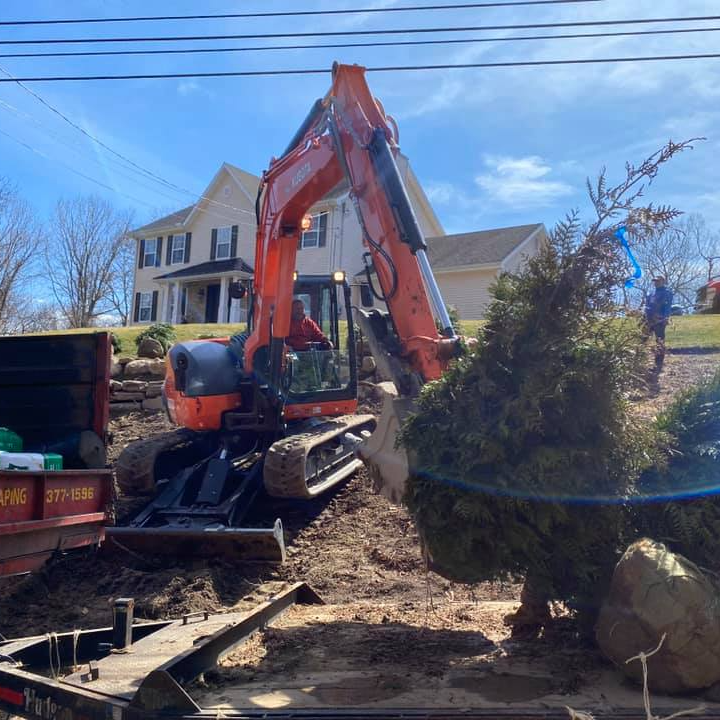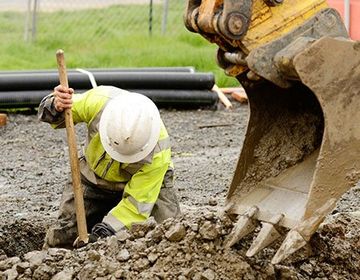Comprehensive Excavation Strategies: Understanding the Fundamentals for Success
The careful preparation, exact execution, and precise interest to detail required in excavation projects demand an extensive technique that encompasses numerous essential elements. The true mastery lies not just in understanding these basics however in perfectly integrating them to navigate the intricacies of excavation jobs with finesse.
Recognizing Excavation Task Preparation

The initial phase of any kind of excavation task is the planning stage, where important choices are made that can significantly affect the result of the job. Understanding the task scope, timeline, and spending plan constraints is essential for producing an extensive excavation plan that makes sure the task's success.
One secret aspect of excavation task preparation is the growth of an in-depth timeline that outlines the series of turning points, activities, and deadlines. By very carefully taking into consideration all these aspects during the preparation stage, excavation tasks can be implemented successfully and properly, leading to successful end results - lancaster excavation.
Dirt Evaluation and Site Evaluation
Performing complete soil evaluation and website evaluation is an essential step in the prep work stage of any excavation project. Soil evaluation involves identifying the structure, structure, and buildings of the soil at the excavation site. This information is important for recognizing the dirt's bearing capacity, moisture content, and capacity for erosion, which are crucial consider determining the excavation methods and devices needed for the job.
Website examination surpasses dirt evaluation and incorporates a more comprehensive assessment of the overall site problems. This examination includes identifying any type of prospective threats, such as underground utilities, ecological concerns, or unstable surface, that could influence the excavation procedure. By extensively evaluating the website, job supervisors can create reliable excavation strategies that focus on safety and security, efficiency, and environmental security.
Using sophisticated innovations like ground-penetrating radar, dirt tasting, and drone studies can enhance the accuracy and performance of soil analysis and website examination. Investing time and resources in these initial steps can ultimately conserve time and stop expensive delays or issues during the excavation procedure.
Devices Selection and Use
Effective excavation projects count heavily on strategic tools choice and usage to ensure ideal performance and efficiency. Selecting the best tools for the task is vital in taking full advantage of efficiency and decreasing downtime. Elements such as the type of dirt, depth of excavation, and job scope play a substantial role in establishing one of the most suitable tools for the task handy.

Along with choosing the suitable equipment, appropriate usage is crucial to job success. Operators has to be trained to handle the equipment safely and efficiently - septic ohio. Normal upkeep checks and timely repair services aid prevent break downs and guarantee consistent efficiency throughout the job
Safety And Security Steps and Laws Compliance
In the world of excavation tasks, focusing on safety steps and compliance with regulations is extremely important to making certain a protected and legally audio functional environment. Precaution include a variety of techniques, consisting of conducting comprehensive website assessments, implementing correct signage and obstacles, and supplying sufficient safety training for all employees associated with the excavation process. Adherence to laws, such as OSHA demands in the USA, makes certain that the excavation job fulfills the required standards to shield workers, bystanders, and the surrounding environment.

Tracking Development and Adjusting Methods
Exactly how can Learn More forecast managers effectively track the advancement of excavation projects and adjust their approaches as necessary to optimize outcomes? Surveillance progress is essential for making certain that excavation tasks remain on track and fulfill target dates. Project supervisors can utilize numerous tools and techniques to track progression, such as everyday progress records, regular website evaluations, and progressed tracking modern technologies like drones and GPS tracking systems. By continually checking the job's advancement, supervisors can identify any type of potential delays or concerns at an early stage and take proactive procedures to address them.

Conclusion
To conclude, understanding the basics basics of extensive excavation approaches is necessary for the success of any type of project. By recognizing job planning, examining soil and website conditions, selecting ideal devices, complying with safety and security policies, and keeping track of progress, task managers can make certain a efficient and smooth excavation procedure. Executing these strategies will certainly result in effective results and decrease potential threats or obstacles during the excavation job.
The initial phase of any kind of excavation task is the preparation phase, where important decisions are made that can dramatically affect the result of the job. Understanding the job range, spending plan, and timeline restrictions is crucial for producing a thorough excavation strategy that ensures the job's success.
Just how can predict managers efficiently track the improvement of excavation tasks and adjust their techniques appropriately to maximize end results? By very closely keeping track of progress and being ready to adjust approaches, project managers can enhance the overall success of excavation projects.
By comprehending job preparation, examining dirt and website problems, picking ideal tools, complying with security guidelines, and checking progression, project supervisors can guarantee a effective and smooth excavation process.